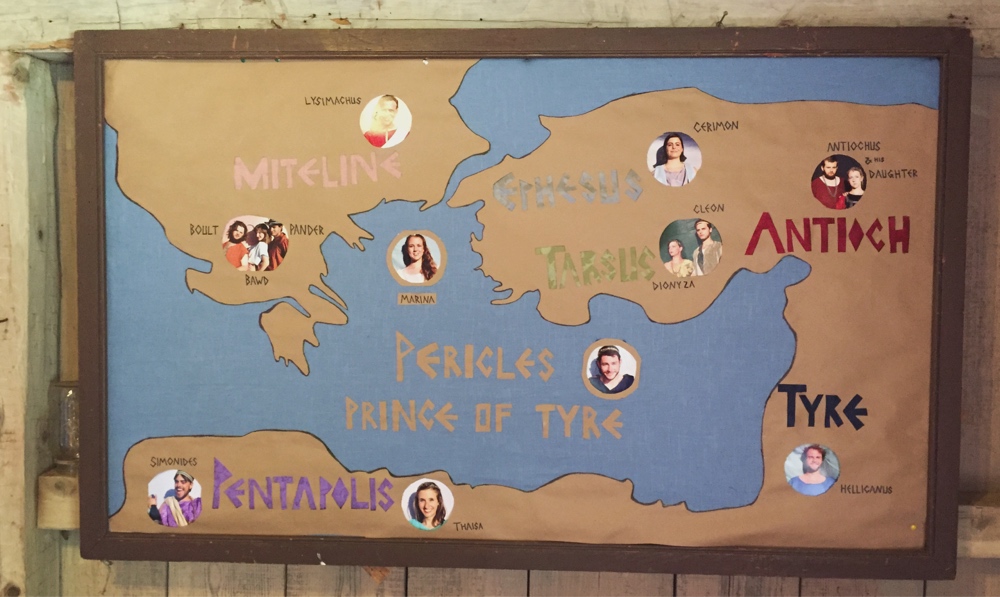Pericles at U Texas Winedale
In the last year, I’ve had a chance to listen to all of Shakespeare’s play read aloud, dramatically, so to speak. One of them caught my attention because it was at the very end, in some type of chronological order, Pericles. Date for it roughly 1608?
Pericles at U Texas Winedale
After hearing Pericles, Prince of Tyre, on a drive to and from Austin for work, I was greatly enthused and listened to a podcast – academic lecture – about the play, again. Seems that current scholarly thinking tends to suggest that the first two acts were probably by George Wilkins and Shakespeare collaborated on the final three. Actual proof is sketchy, at best, with some scholars claiming it’s all Shakespeare.
Pericles at U Texas Winedale
Best guess? Mostly Shakespeare, and at that? Follows a number of similar elements found in both The Tempest and The Winter’s Tale. Last staged version of The Winter’s Tale that I can recall seeing? UT Winedale, maybe two dozen years back.
Then, too, from the lecture, it seems that Shakespeare’s Pericles, Prince of Tyre was an audience favorite in previous centuries, only in modern times has the play fallen out of favor. Not completely, just not produced as often.
Pericles at U Texas Winedale
So Pericles at U Texas Winedale, the play has vice, royalty behaving very badly, murder-mystery, intrigue, a revolt, dysfunctional families, lost children, sword fighting, long-lost loves, pirates, tempests, and shipwrecks. Bonus: politician in a whorehouse.
Both Henry 5 and Pericles use a “chorus” to keep the plot elements moving in the story. With their Henry V, it was a cast ensemble, quite remarkable as a staging device, and eloquently executed. Moving, for me, anyway.
While it was the same crew from the previous evening’s Henry V, the performance was equally spirited and rousing.
In Pericles, it was three females, equally clear of voice and delivery, serving as the chorus.
I knew – exactly – how the play was going to end, and yet that cast still evoked joyful, cathartic tears from me.
“And they lived happily ever after.”
